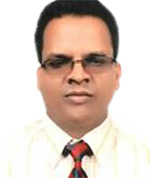On 31st August 1997, a 12-year-old boy from a high-profile family was quietly watching the funeral of his mother, who had died in a tragic road accident. Little did his family members know about the ongoing storm in the mind of this little boy. That boy graduated from the famous Eton College of London with good marks. He was always in the news headlines due to his freaky and luxurious lifestyle. Everything looked okay from the outside. One day, after 20 years, he broke his silence about his suffering during all these years. The bottled-up emotions within him had created havoc in his mental health condition, leading to severe anxiety and panic disorders. He opened an organization called ‘Heads Together’ to help people with mental health problems, and he has been actively working as a mental health activist since then. We all might have guessed correctly; that person is none other than Prince Harry, the second son of the late Princess Diana of the Royal Family of the UK.
Before the pandemic, the prevalence of anxiety ranged from 5-20%, and depression from 5-10%. But after the COVID-19 pandemic, these numbers have increased by almost 25-30%. Similarly, the suicide rate globally has increased by 10-15%. Suicide is the second most common cause of death among the 15-25 years age group worldwide. According to surveys, every 40 seconds, a person commits suicide in the world, mainly due to anxiety, stress disorders, and depression. Many foreign celebrities like comedian Robin Williams, actress Lucy Gordon, Aaron Carter, and Indian stars Jiah Khan, Tunisha Sharma, Pratyusha Benarji committed suicide due to mental anguish. Similarly, in our country, Sirisha Karki, Jenny Kuwar, and just recently, Saruk Tamarakar took his life by hanging in his own home. Sadly, these deaths could have been prevented had these people received timely psychological intervention like counseling, psychotherapy, and medicines.
Mental Health and Human Rights

We would be surprised by the fact that many world-famous leaders like Abraham Lincoln, Winston Churchill, Boris Yeltsin; genius scientists like Nikola Tesla, Sir Isaac Newton; famous writers like Charles Dickens, Leo Tolstoy had overcome their mental health problems and contributed to making our world a better place.
Similarly, many famous Western celebrities like Angelina Jolie, Demi Lovato, Mel Gibson, Jim Carrey, Janet Jackson, Nicole Kidman; Indian stars like Amitabh Bachchan, Shahrukh Khan, Deepika Padukone, Anushka Sharma, Tiger Shroff, Hrithik Roshan too have suffered and come out of the problem after seeking medical help. Now, these celebrities are advocating the importance of mental health in our life. This is helping to remove stigmas regarding mental health problems in our society.
The symptoms of mental health problems vary according to the nature of diseases. Stress disorders and anxiety present as restlessness, loss of concentration/focus, lack of sleep, increased heart rate, etc. Whereas depression presents as a feeling of worthlessness, hopelessness, and helplessness. The depressed one blames/criticizes oneself and may lose interest in living, eventually taking one’s life. The person with a more severe form of mental health disease called psychosis sees and hears unreal sounds and visions and is delusional. The news we often hear about the mass fainting of school children is called Conversion disorder, where pent-up and unresolved mental/emotional issues manifest as physical symptoms such as blackout and fainting attacks.
As per WHO (World Health Organization), by 2030, the impact of mental health problems would be even more global. Until a few decades ago, there were no good psychotropic medicines to treat mental diseases. But nowadays, there are very good medicines as well as psychotherapies and counseling methods to address the issues. Any mental disease can be treated successfully as other physical diseases. Yet, many people hide their problems and, instead of visiting doctors and psycho-counselors, prefer to go to witch doctors and dhami-jhakris. This is mainly due to the stigma associated with mental health problems, stopping people from seeking help.
So, as responsible citizens, we should fight back against such myths about mental health issues. We should openly talk about mental health problems and give a helping hand to the ones who are silently suffering. Let us remember that anyone can get mental health problems similar to physical problems. So let us take good care of our mental health and do not hesitate to ask for help if needed. We should not be shameful/hateful to ourselves for having such a common problem. Let us not forget ‘There is no complete health without mental health,’ and having a mental health problem is not something to be ashamed of.



































